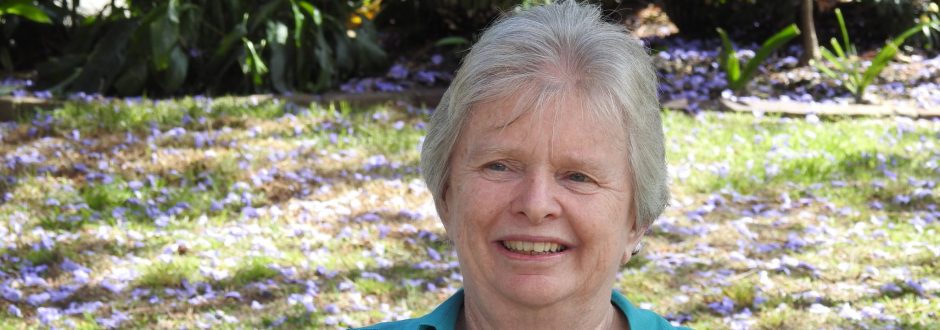How can this cruelty, hatred and violence be stopped? How can human dignity be restored across the globe? What can each of us do to build societies of respect, tolerance, understanding and peace, asks Good Samaritan Sister Clare Condon.
BY Clare Condon SGS
It’s Saturday November 14 and I’ve been watching the TV reports of the devastating terrorist attacks on innocent people in Paris. This horrific event of carnage, along with last week’s bombing in Beirut and the downing of the Russian plane in Egypt, confirms my belief that the world is caught up in tragic inhumane realities which can only be called evil and vile.
We all ask the question: how can this cruelty, hatred and violence be stopped? How can human dignity be restored across the globe? What can each of us do to build societies of respect, tolerance, understanding and peace?
Some, guided by the dictum ‘an eye for an eye’, would advocate that the only way to respond to hatred is with hatred, and to massacres is with revenge. One’s immediate response to such devastation and evil is one of retaliation. The French President has vowed a “merciless” response to this unprecedented terrorist atrocity. Indeed, in a democratic society, the perpetrators need to be brought to justice through the rule of the law. But responses that add to the violence and the hatred lead to further massacres and deaths. They offer no long-term solution to the horrors of war that so many in the Middle East and North Africa are enduring and fleeing in unprecedented numbers.
Finding answers is complex and challenging for world leaders. Violence as executed by radical Islamic ideologues is contrary to the traditions of all the Abrahamic faiths, whether Jewish, Islamic or Christian. Solutions can only come from a thorough and transparent identification of all the underlying causes of armed extremism and radicalisation. These causes are deep and long-standing. They involve a loss of human identity and belonging within a population of people, especially amongst young people. They involve indoctrination of the most insidious kind. They involve apparent access to weapons of destruction purchased from their enemies.
Hundreds of thousands of people are fleeing from civil wars. These conflicts need resolution. All those who are peace-loving moderates across world leadership need to come together, united as one, in a concerted effort to bring about peace. Leaders representing the moderates of Islam and Israel, the moderates of the Middle East and the West, must come together as one. Andrew MacLeod, an expert in terrorism from Kings College, London, in an interview on ABC TV on Saturday, strongly emphasised this need to work together to create an environment where extremism is challenged, nullified and defeated.
According to MacLeod, the French have not done enough to integrate other cultures into their social fabric. The suburbs of Paris have been allowed to develop into ghettos of hopelessness. Young migrants are often left in disadvantage and poverty. This is a significant challenge to the multicultural living to which Parisians aspire. Unemployment, poverty and destitution, with no hope of aspiring to something more, is dehumanising these people.
To dehumanise another is to dehumanise oneself. In many societies, we are witnessing signs of this dehumanisation and its horrific effects. Here in Australia our government sanctions the cruel and dehumanising policy of indefinite detention of refugees and asylum seekers. In the past week, the death of Iranian-Kurd Fazel Chegeni again raises the question of why punishing and degrading some people to deter others can be justified. It is plainly unethical, cruel and violent in the name of government. Such policies can lead to significant mental health issues, despair, hatred, isolation, extremism and radicalisation. Natural, healthy human behaviour can be thwarted by such cruelty.
Let me not be naïve; evil needs to be confronted! Surely, the gathering of the G20 Summit leaders in Turkey during this coming week must be a place and a time for soul-searching, for considered and new decisive action in order to find long-term solutions to the horrors of civil war, of the radicalisation engendered by war and the cruelty perpetrated by extremism.
Professor Rohan Gunaratna of the International Centre for Political Violence and Terrorism Research at Nanyang Technological University in Singapore, lays the challenge at the feet of these world leaders when he said in an article in the Sydney Morning Herald: “The attacks are a consequence of the failure of the international system to craft and implement a global strategy to stabilise conflict zones and fight its vicious by-product, global terrorism”. This week the G20 Summit offers a new opportunity to change the narrative.
Here, in my suburb, what can I do? I can certainly pray for the victims, their families and associates. I can stand in solidarity with all those who suffer, no matter their ethnicity or religion.
Each of us can build on our collective humanity and integrity by befriending the stranger, by showing respect to all those we meet, by expressing tolerance for difference, by developing an understanding of cultural and religious traditions, and by seeking peace and actively pursuing it in every relationship we encounter. Our collective humane responses to one another must prevail during these challenging times.
